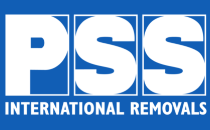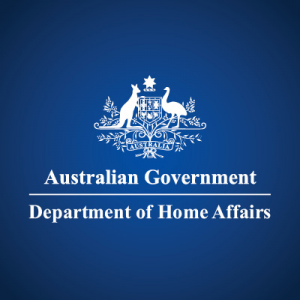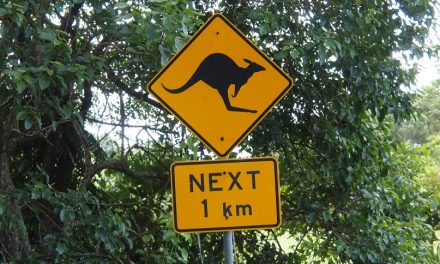Don’t submit your Expression of Interest (EOI) on Skillselect for your Australian Skilled Migration Visa until you have considered all these important questions and discussed your situation with a MARA-registered migration agent
There has been a significant change of emphasis in the General Skilled Migration (GSM) program once Australia re-opened its borders. During the last 6 months almost 60,000 invitations have been issued to Skilled Independent applicants (subclass 189) and the states and territories are also actively nominating offshore applicants. Places are, however, competitive with some occupations receiving greater priority to address employment demand.
If, however, your dream is to start a new life in Australia, do not get too disheartened as many British people still successfully migrate to Australia every year. To have the best chance of success you need to carefully research and consider the various stages of the application process and decide which visa option is best suited to you. With proper planning and seeking the right advice before you submit your Expression of Interest (EOI) for an Australian skilled visa through SkillSelect, you will be able to plan your future with the confidence that your expectations are realistic and achievable.
At PSS International Removals we work with a number of experienced MARA-registered migration agents. Their expertise is ever more valuable and necessary as the migration process becomes more complex, challenging and competitive.
We’ve asked Grahame Igglesden – a veteran of the Australian migration industry, for his advice on UK migrants starting out on their visa application journey on Skillselect.
With proper planning and preparation, before you submit your Expression of Interest (EOI) for an Australian skilled visa through Skillselect, you can assure yourself the best possibility of success in 2023.
You may also want to check out which occupations have the most demand as these will receive more EOI invitations. Our article “Australia’s Most Wanted: The Most In-Demand Jobs for Skilled Migration To Australia” goes over this in detail including a rank of the top jobs with critical shortages in Australia.
Would you like information on job vacancies and visa spsonsorship in Australia?
Click Here.
Contents
- What is SkillSelect and an Expression of Interest?
- General criteria to apply for a VISA in Australia
- What are the General Skilled Migration VISA streams?
- Is my nominated occupation on the Medium Long-Term Skilled Shortage List (MLTSSL) or the Short-Term Skilled Occupations List (STSOL)?
- How can I generate the required number of points to receive an invitation from the Department of Home Affairs?
- What are the chances of being nominated by a state or territory government?
- Should I live in regional Australia?
- Can my work experience be taken into account if I do not have any qualifications?
- What date will my skills be recognised and when can I claim points for work experience?
- What documents do I need to do to prove my work experience?
- Will I need to sit an English language test and what level will I need to achieve?
- Have I correctly calculated the number of points I can claim in my Expression of Interest (EOI)?
- Can I bring my partner if we are not married?
- What type of criminal offence could result in my application being refused?
- Will a pre-existing health condition mean that I will fail the medical?
- Finding a reliable MARA-registered migration agent to help you with your visa application
- Would you like information on jobs and visas in Australia? Just complete the form below.
What is SkillSelect and an Expression of Interest?
SkillSelect is the Australian Government’s online application system for anyone wanting to apply for a skilled migration visa to live and work in Australia. The program is designed to select the best and brightest candidates and invitations are targeted by occupation based on skilled shortages. There are far more Expressions of Interest (EOI) submitted than there are places available and therefore applicants with the most points will have a greater chance of being invited.
Much can change as you weave your way through migration and understanding and reviewing your visa options before you set out on your visa journey will be time well spent. To receive an invitation, you will need to submit an EOI and to do this you must arrange for your skills and work experience in your nominated occupation to be assessed by a relevant Australian assessing authority. Before doing this you should also ensure you have calculated that you are able to generate the required number of points (minimum 65 but some occupations are higher) to receive an invitation.
The good thing is that once you have submitted an EOI on SkillSelect, your details can be viewed by the DHA as well as state and territory governments and Australian employers. Your EOI is valid for 24 months and during this period you can update the system if your circumstances change to improve your points score but, once you receive an invitation no further alterations can be made to your points score.
Your General skilled Migration visa application will be decided on the basis of evidence presented in your EOI. It is therefore very important that you ensure the claims you have made are accurate to avoid potential refusal. One of the most common reasons for an application being refused is overclaiming points for work experience or not being able to provide satisfactory evidence of your employment history. Once you are invited, you only have 60 days to make an application and you should ensure that all your documents are ready to upload to SkillSelect system within this timeframe in order to give yourself every chance of success.
General criteria to apply for a VISA in Australia
The first thing to understand is that you cannot apply for a visa until you have been invited by the Department of Home Affairs (DHA) and to do this you must meet the following basic criteria:
- Have an occupation on the skilled occupation list – Australian Government website.
- be under 45 years of age at the time of invitation by the DHA
- Have received a positive skills assessment in your nominated occupation
- Have achieved the required number of points (minimum 65) for the visa class selected
- Have competent English or higher via a test if you need to claim additional points
- Have lodged an Expression of Interest (EOI)
- Be nominated by a state or territory government if applying for a subclass 190 visa
- Be nominated by a state or territory government of close relative if applying for a subclass 491 visa
What are the General Skilled Migration VISA streams?
The GSM visa program comprises 3 visa streams and the subclass you select will be determined by a range of factors such as your nominated occupation, age and your potential points score.
- Skilled Independent (subclass 189)– this is a permanent visa which will enable you to reside anywhere in Australia but, your nominated occupation must be on the Medium-and-Long-Term Strategic Skills List (MLTSSL). Invitation rounds are generally held quarterly, and the skills list and points are subject to change each time.
- Skilled Nominated (subclass 190 – nomination by a state or territory government). This is a permanent visa which requires you to reside in the nominating state or territory for 2 years. If you are nominated, you will automatically receive an invitation from SkillSelect to apply for a visa and will be allocated an additional 5 points for the nomination.
- Skilled Regional Work visa (subclass 491 – nomination by a state or territory government or sponsorship from a close relative) – This is a provisional visa requiring a commitment to live and work in regional Australia for 3 years (anywhere except Sydney, Melbourne, or Brisbane). Holders of a subclass 491 visa will become eligible to apply for permanent residence (subclass 191 – Skilled Regional visa) after 3 years. If you are nominated, you will automatically receive an invitation from SkillSelect to apply for a visa but if you are sponsored by a relative you will be subject to invitation rounds and your nominated occupation must be on the MLTSSL. Applicants will be allocated an additional 15 points for the nomination or sponsorship.
Is my nominated occupation on the Medium Long-Term Skilled Shortage List (MLTSSL) or the Short-Term Skilled Occupations List (STSOL)?
If your nominated occupation features on the MLTSSL you can lodge an application under any one of the following visa subclasses:
- Skilled Independent – subclass 189
- Skilled Nominated – subclass 190
- Skilled Work Regional (Provisional) visa – subclass
If, however, your occupation only features on the STSOL you must be nominated by a state or territory government or by an employer. You will not be able to apply under subclass 189 and you cannot be sponsored by a close relative.
The up-to-date skilled occupation list can be found on the Australian Government website.
How can I generate the required number of points to receive an invitation from the Department of Home Affairs?
In the UK, most applicants will generate points for their age, English (via a test), qualifications, work experience, being a single applicant, a spouse, nomination by a state/territory government or sponsorship from a close relative residing in a designated area of Australia. Points can also be awarded for a Professional year, Australian study, Credentialed community language, studying and living in regional Australia and partner skills. Click here for a summary of the points test.
The DHA held invitation rounds in August, October, and December 2022 with 58,714 applicants invited. This is a considerable increase and reflects the impact of the Australian border being closed during the Covid pandemic which has subsequently resulted in a shortage of skilled workers in Australia. It should be noted, however, that invitation rounds are targeted by occupation and therefore not everyone whose occupation is on the MLTSSL will be invited or the points required may be higher than 65.
What are the chances of being nominated by a state or territory government?
Each state government has their own occupation lists, eligibility criteria and application processes for their nomination programs, with some states operating an invitation-based program and requiring a Registration of Interest (ROI) to be submitted. Invitations are ongoing and there are no set dates. Your occupation must be available for nomination, and you must meet the selected state or territory government’s eligibility criteria and application process.
Nomination approval will generally be determined by factors such as your overall commitment to the nominating state or territory, the number of years work experience, specialised skills, employability, English language skills, relatives already residing in the state or territory and the financial capacity to settle in the state or territory.
Should I live in regional Australia?
The DHA are actively encouraging people to settle in regional or low population growth areas of Australia. With 15 points available for choosing to live outside some of the more populated cities these points can make a difference in meeting your points target. Remember also that if you choose to reside in Western Australia, South Australia, Tasmania, Northern Territory, or the Australian Capital Territory you can live in the capital cities of Perth, Adelaide, Hobart, Darwin, and Canberra.
Would you like information on jobs and visas in Australia?
Click Here.
Can my work experience be taken into account if I do not have any qualifications?
This will depend on your nominated occupation and which assessing authority is responsible for assessing your skills. Most professional occupations require an education level of a degree or higher diploma with a combination of relevant work experience.
Specific occupations such as Teachers, Nurses and Engineers require relevant qualifications whereas senior managers and IT professionals can be assessed on the basis of work experience or accountants if they are a full professional member of a recognised accounting body.
Trades-persons assessed by Vetassess will need to meet the following skills assessment criteria:
- Licensed trade with no formal training – six years work experience
- Licensed trade with formal training – four years work experience
- Non-licensed trade with no formal training – five years’ work experience
- Non-licensed trade with formal training – three years’ work experience.
Applicants must have completed at least 12 months employment in their trade in the 3 years prior to lodging their application.
Tradespersons assessed by Trades Recognition Australia (TRA) must include evidence of formal training and training outcomes that can be considered comparable to the AQF qualification in Australia for your nominated occupation. This includes:
- final qualification/s or apprenticeship certificate/s or award/s
- a full academic transcript or other documents that include the start and end date of your training and details of the program of study.
- apprenticeship documents such as the contract of apprenticeship, journal or any other relevant document from your employer, governing body or training institution relating to your apprenticeship (if applicable).
The following items will not be accepted as a substitute for a qualification:
- occupational licences
- trade tests not supported by comparable and verifiable formal training
- short course certificates such as single-day or single-subject training
- work experience.
Please note that if you have been awarded an AQF 3 certificate by a registered training organisation, this qualification is also recognised by TRA.
What date will my skills be recognised and when can I claim points for work experience?
In most situations, you can claim points for work experience once you have completed your training or recognised qualification and have commenced employment at the appropriate skill level.
The date you will be recognised as fully skilled for migration purposes will depend on your nominated occupation. For example, General Occupations assessed by Vetassess require applicants to have between 1 and 3 years’ work experience depending on the relevance of the qualification to the nominated occupation. This work experience cannot be claimed for migration points under the employment factor
The Australian Computer Society require a minimum of 2 years highly relevant work experience including a relevant degree or up to 8 years if you do not have a formal qualification. This work period also cannot be claimed under the points test.
Tradespersons will be recognised as fully skilled on completion of an internationally recognised qualification (formal training) or once the appropriate informal training period has been completed in the workplace in the nominated occupation (see above). The training period in all cases whether formal or informal requires a minimum of 3 years of relevant work experience.
Accountants with a degree in financial accounting will be recognised from the date degree was awarded and is eligible to claim work experience points from that date. Accountants with a degree not relevant to accounting or without a degree will be recognised on the date accounting body exams were completed and will be eligible to claim work experience points from that date.
What documents do I need to do to prove my work experience?
We often receive enquiries from applicants who have not kept evidence such as payslips and taxation records or whose work statements are too vague for a case officer to determine the employment history.
Applicants are required to prove their employment history by presenting detailed statements of service specifying the actual period of employment, number of hours worked each week and duties performed. Statements must be backed up with secondary evidence such as payslips, P60’s, taxation records or bank statements showing a trail of funds deposited by a client or employer. Failure to provide this evidence will result in the case officer not allocating work experience points claimed in your EOI which may result in your application being refused.
Will I need to sit an English language test and what level will I need to achieve?
Generating points for English via an English language test can pose the biggest obstacle to achieving the required number of points.
Applicants who hold a passport from the UK, USA, Canada, New Zealand, or the Republic of Ireland are deemed to be competent in English and are not required to sit an English language test but will not be awarded any points. To be awarded points for English you will need to sit an English language test to claim 10 points for Proficient English and 20 points for Superior English. Please note that regardless of the country of your passport, some skills assessing authorities require you to demonstrate that you are proficient in English via an Academic English language tests for occupations such as registered nurses and accountants
Have I correctly calculated the number of points I can claim in my Expression of Interest (EOI)?
By submitting an EOI you are providing critical information about your age, education and qualifications, skills assessment, employment history, English language skills and other personal details which will attribute points and enable the DHA to consider inviting you to apply for a skilled visa for Australia. This information needs to be accurate and if you have miscalculated the points claimed in your EOI your application may be refused.
Can I bring my partner if we are not married?
If you have a partner and you are not married but living in a de-facto relationship you will need to provide evidence of your commitments established in at least the 12 months before your invitation is received.
Emphasis is placed on commitments established between you both which is generally demonstrated by sharing a common residence and evidencing a level of mutual support and co-operation in financial, social, and domestic matters. The amount of evidence you provide will be determined by your personal circumstances and will vary considerably depending on the duration of the relationship. Applicants who have only recently married will also be required to provide evidence of their relationship history.
Would you like information on jobs and visas in Australia?
Click Here.
What type of criminal offence could result in my application being refused?
All applicants applying for a visa to travel to Australia are required to be of good character. The DHA will take into consideration all the circumstances of an applicant’s character history and failure to disclose an accurate summary of any offences or cautions may result in your application being delayed or refused.
It is therefore extremely important that you accurately declare to the DHA:
- any criminal offences or cautions that have resulted in a conviction or any offence(s) or cautions that are awaiting legal action;
- Cautions or offences which have been removed from police records or those that have been stepped down as these will be displayed on an ACRO police report as “No Live Trace” and will be investigated by the DHA.
In deciding whether you meet the character requirement the DHA will consider:
- the protection of the Australian community
- the best interests of any children in Australia
- Australia’s international legal responsibilities
- the impact of visa refusal or cancellation on your family in Australia
- any impact on Australian business and community interests
- the frequency of offences
- your behaviour record since committing the last offence
You have a substantial criminal record for the purposes of the character test in section 501 of the Migration Act 1958 if you have been:
- sentenced to death or imprisonment for life;
- sentenced to a term of imprisonment of 12 months or more (including a suspended sentence);
- sentenced to two or more terms of imprisonment (even if served concurrently) where the total is 12 months or more;
- Have committed a sexually based crime involving a child;
- found by a court to not be fit to plead in relation to an offence but found to have committed the offence and detained in a facility or institution.
Each case is assessed individually and will have regard to when the conviction(s) were committed, the sentence imposed, the mitigating circumstances and the steps you have taken to rehabilitate yourself.
Will a pre-existing health condition mean that I will fail the medical?
The health requirement is designed to protect the Australian health care system from significant costs plus risks to ensure that additional pressure is not put on health care and community services that are in short supply. No diseases or health conditions will automatically result in a failure to meet the health requirement.
This is because the likely costs will depend on the form and severity of the condition. If a Medical Officer of the Commonwealth assesses you as unable to meet the health requirement because you have a disease or condition that is likely to require the use of health care and community services in short supply or on the grounds of significant cost your visa application will be refused unless a health waiver is available.
Finding a reliable MARA-registered migration agent to help you with your visa application

No doubt by now your head will be spinning and you may still be confused and overloaded with information which is difficult to interpret. If this is the case, do not get overwhelmed and take a deep breath and consider talking to a professional and experienced MARA registered migration agent to help you through the process.
Undertaking research on the internet and sharing information on forums can be helpful but, this may leave you with more questions than answers. The General Skilled Migration process is complex and will be determined by many factors. Speaking to a MARA registered migration agent at an early stage will give you the reassurance that you have a realistic visa pathway to pursue and that you have not overlooked any of the regulations that will be applied to you.
If you do decide to engage a migration agent, the DHA recommends only using an agent registered with the Office of the Migration Agents Registration Authority (OMARA) which oversees the professional standards of registered migration agents.
A person who is not registered with MARA cannot offer you legal protection and you run the risk of being exposed to migration fraud by someone who has limited knowledge on immigration procedures and who is not accountable for his/her action. Please click here for further information. The MARA Consumer Guide provides details on the benefits of appointing a registered migration agent to represent you.
In Australia only registered migration agents are legally able to provide migration advice. MARA also encourages migration agents who practice outside Australia to formally register in order to ensure that industry standards are maintained. Migration agents who practice in the UK and who are registered with MARA are subject to the same code of conduct, professional development and regulations applied to agents based in Australia.
In order to achieve and maintain a high level of service a MARA agent must:
- Maintain up-to-date knowledge of migration law and procedure
- Keep a professional library with direct access to migration regulations via Legend
- Undertake continual professional development to maintain knowledge of visa regulations
- Only encourage you to proceed if you have a pathway to be granted a visa for Australia
- Prepare your application in accordance with migration regulations
- Complete your application form
- Manage your application throughout each stage of the visa process
- Keep you informed of processing developments
- Advise you of any changes to migration regulations that could impact on your eligibility.
Would you like information on jobs and visas in Australia?
Just complete the form below.
Once you have organised your visa, PSS International Removals can help you with shipping your items, or if you are looking to move larger items, including furniture, our international removal service to Australia is on hand to help you.
This article gives you an indication of the costs of removals and shipping to Australia.







